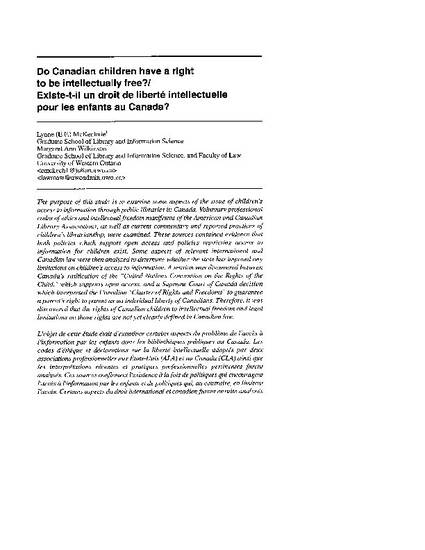
The purpose of this study is to examine some aspects of the issue of children's access to information through public libraries in Canada. Voluntary professional codes of ethics and intellectual freedom manifestos of the American and Canadian Library Associations, as well as current commentary and reported practices of children's librarianship, were examined. These sources contained evidence that both policies which support open access and policies restricting access to information for children exist. Some aspects of relevant international and Canadian law were then analyzed to determine whether the state has imposed any limitations on children's access to information. A tension was discovered between Canada's ratification of the "United Nations Convention on the Rights of the Child," which supports open access, and a Supreme Court of Canada decision which interpreted the Canadian "Charter of Rights and Freedoms" to guarantee a parent's right to parent as an individual liberty of Canadians. Therefore, it was discovered that the rights of Canadian children to intellectual freedom and legal limitations on those rights are not yet clearly defined in Canadian law.
Available at: http://works.bepress.com/ma_wilkinson/53/

June 8-10, 1997, Learned Societies' Congress, St. John's Newfoundland. Refereed.